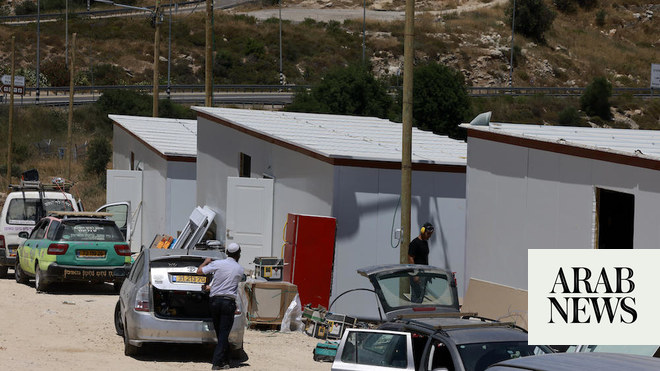
SINGAPORE (Reuters) - A military coup in Myanmar and a bloody crackdown on protesters has piled pressure on foreign companies operating in the country. Some firms are scaling back or even pulling operations while those with ties to army-linked firms are being urged to cut them.
Following is a snapshot of global firms doing business in Myanmar.
ENERGY
Total SE and Chevron Corp have a large offshore gas project in partnership with Myanmar Oil and Gas Enterprise (MOGE).
The United Nation’s human rights investigator on Myanmar, Tom Andrews, said in a report last week that countries should impose sanctions on MOGE, which is now controlled by the military and represents its largest source of revenue.
A Chevron spokesperson said it will comply with all applicable laws and sanctions. Total declined comment on the threat of sanctions.
Chevron agreed in 2019 to put a focus on human rights in Myanmar, under pressure from an activist investor. reut.rs/3eiveQX
Woodside Petroleum - The Australian gas producer said last month it was pulling staff from its exploration efforts amid concerns over violence by security forces.
Sembcorp Industries - The Singaporean conglomerate operates a 225-megawatt power plant in Mandalay.
INDUSTRIALS
Adani - A unit of the Indian firm is developing a port in Yangon through a lease deal with military conglomerate Myanmar Economic Corporation (MEC), according to a 2019 United Nations report.
The report urged foreign firms to cut business with the military due to human rights abuses. An Adani spokesman declined to comment on the allegations that the land is leased from MEC.
POSCO - An affiliate of the South Korean steelmaker runs a plant in Myanmar with military conglomerate Myanmar Economic Holdings Limited (MEHL). A POSCO C&C representative said it plans to reconsider the business if it finds evidence MEHL is involved with the coup.
CONSUMER
Kirin Holdings - The Japanese brewer last month said it was scrapping a beer alliance with MEHL, over which it has long faced scrutiny. It has said it wants to stay in Myanmar, one of its few growth markets.
Tiger - Protesters have called for a boycott of the Singapore beer brand, seeking to force a tougher stance from Singapore, Myanmar’s biggest source of foreign investment. Heineken, which owns the brand, has not responded to a request for comment.
Coca-Cola Co - The soft drinks giant was one of the first American companies to re-enter Myanmar after the U.S. started easing sanctions in 2012 and runs plants outside Yangon.
Carlsberg - The Danish brewer operates in Myanmar via a joint venture. A spokesperson said it has scaled down production slightly due to the unstable situation.
Unilever - The Anglo-Dutch consumer goods giant runs a plant in Myanmar producing shampoos and haircare products and has been building its presence through a joint venture announced in 2017.
HOTELS
Hilton Worldwide Holdings - One of its three hotels in Myanmar is in Rakhine state and on land leased from the military, activist groups say. Hilton said it operates in line with trade sanctions and is taking steps to address human rights considerations.
Shangri-La Asia - The Hong Kong-listed group runs a luxury hotel in commercial hub Yangon on land leased from the military, according to the 2019 UN report. Shangri-La did not respond to a request for comment.
GARMENTS
H&M - The Swedish fashion giant has suspended new orders from Myanmar, where it has around 45 direct suppliers, citing “practical difficulties and an unpredictable situation”.
Pan-Pacific Co Ltd - The Korean company runs factories in Myanmar, producing products for brands like Columbia, Gap and Zara. It cut ties with military conglomerate MEHL in 2020 by buying out its stake in one of its Myanmar businesses, a spokesman for the firm said.
AUTOS
Suzuki Motor - The Japanese automaker is the oldest vehicle producer in Myanmar and the largest by sales. It suspended operations at its two plants there immediately after the Feb. 1 coup but then reopened them.
FINANCE
Japan’s Mitsubishi UFJ Financial Group, Sumitomo Mitsui Financial Group and Mizuho Financial Group, China’s ICBC and Singapore’s OCBC and DBS are among foreign banks with a presence in Myanmar.
TELECOMS
Telenor - The Norwegian telecoms provider entered Myanmar after it began opening up its market in 2013. Since the coup, Telenor has been forced by authorities in Myanmar to shut down its network intermittently. It has expressed concern about amendments to cyber laws that it says broaden the military’s power and curbs civil liberties.
COMMODITIES
Olam - The Singapore-listed commodities trader buys rice in Myanmar and has a teak business which it is in the process of exiting. It stopped purchasing rice from military conglomerate MEC in early 2019 and says it now has a limited presence in Myanmar.
Wanbao Mining - The subsidiary of Chinese state-owned weapons maker Norinco operates two copper mines in Monywa, in north-central Myanmar, in partnership with MEHL. Monywa copper miners stopped work last month to demonstrate against the coup.
British American Tobacco - The tobacco group re-entered Myanmar in 2013. Its joint venture partner has come under scrutiny for military ties and land grabbing. A BAT spokesman said its operations comply with business standards.












